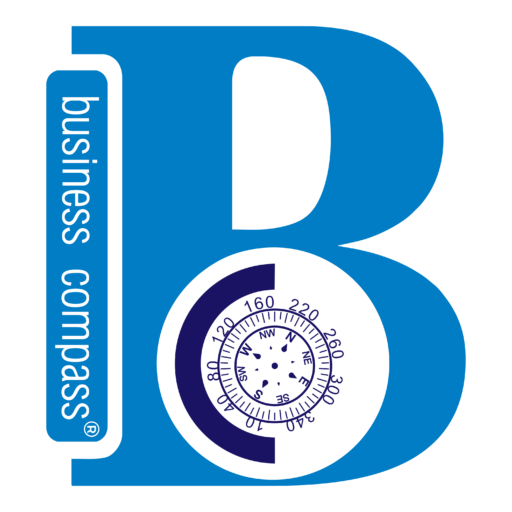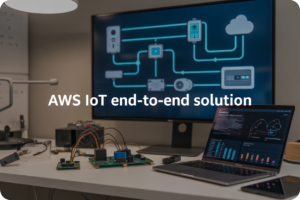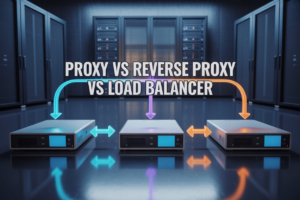Healthcare administrators, IT directors, and medical practice managers face mounting pressure to streamline patient referral processes while reducing administrative burden and improving care coordination. Generative AI on AWS Bedrock offers powerful solutions that transform how healthcare organizations handle referrals, from initial requests to specialist connections.
This guide shows you how AWS Bedrock healthcare applications can revolutionize your referral workflows through intelligent automation and data-driven insights. We’ll explore how generative AI patient referrals eliminate common bottlenecks like manual data entry, communication delays, and referral tracking gaps that plague traditional systems.
You’ll discover practical healthcare workflow automation strategies that reduce referral processing time by up to 60% while improving accuracy and patient satisfaction. We’ll cover AWS Bedrock implementation healthcare best practices, including integration approaches that work with existing electronic health records and staff workflows. Finally, we’ll examine real-world results from organizations using AI-powered referral management to measure ROI and optimize patient care delivery across their networks.
Understanding Current Patient Referral Challenges
Manual Documentation Creates Processing Delays
Healthcare providers still rely heavily on paper-based forms and manual data entry for patient referrals, creating significant bottlenecks in the referral process. Medical staff spend countless hours filling out referral forms by hand, then waiting for administrative personnel to input this information into electronic systems. This dual-handling approach leads to processing delays that can stretch referrals from minutes to days, directly impacting patient care timelines. When urgent referrals get stuck in manual workflows, patients face longer wait times for specialist appointments, potentially worsening their medical conditions.
Communication Gaps Between Healthcare Providers
Primary care physicians and specialists often work in isolated systems that don’t communicate effectively with each other. Email chains, fax machines, and phone calls become the primary methods for sharing patient information, creating opportunities for miscommunication and lost referrals. Many referring doctors never receive confirmation that their patients actually attended specialist appointments, leaving them unaware of treatment outcomes. These communication breakdowns result in fragmented care where providers make decisions without complete knowledge of a patient’s medical journey, leading to duplicated tests and inconsistent treatment plans.
Incomplete Patient Information Transfer
Referrals frequently arrive at specialist offices missing critical patient data, medical histories, or recent test results. Primary care providers may forget to include relevant lab work, imaging studies, or medication lists when preparing referral documentation. This incomplete information forces specialists to delay appointments while they gather missing details or order duplicate tests. Patients experience frustration when they arrive for specialist consultations only to discover their appointments must be rescheduled due to insufficient medical records, creating additional delays in their care pathway.
Administrative Burden on Medical Staff
Medical assistants and nursing staff dedicate significant portions of their workday to managing referral paperwork rather than focusing on direct patient care. They must track referral statuses, follow up on missing information, and coordinate scheduling between multiple healthcare facilities. This administrative overhead reduces the time available for patient interactions and clinical responsibilities. Healthcare organizations face increased operational costs as they assign valuable clinical staff to handle routine referral management tasks that could be automated through AI-powered healthcare workflow automation systems.
AWS Bedrock Fundamentals for Healthcare Applications
Serverless Foundation Model Access
AWS Bedrock healthcare implementations provide seamless access to leading foundation models including Claude, Jurassic, and Titan through fully managed APIs. Healthcare organizations can instantly deploy generative AI patient referrals capabilities without maintaining complex infrastructure or managing model training pipelines. This serverless approach enables rapid prototyping and scaling of healthcare workflow automation solutions while reducing operational overhead and technical complexity for medical institutions.
Enterprise-Grade Security and Compliance Features
Healthcare organizations require robust data protection when implementing AWS Bedrock implementation healthcare solutions. The platform offers HIPAA-eligible services with comprehensive encryption at rest and in transit, ensuring patient data remains secure throughout AI processing workflows. Built-in audit logging tracks all model interactions, while VPC isolation and private endpoints maintain strict network security boundaries essential for medical referral system improvement initiatives in regulated healthcare environments.
Integration Capabilities with Healthcare Systems
Modern healthcare AI integration strategies demand seamless connectivity with existing EHR systems, practice management platforms, and clinical databases. AWS Bedrock supports RESTful APIs that easily integrate with Epic, Cerner, and other major healthcare platforms through standard HL7 FHIR protocols. Real-time data synchronization enables AI-powered referral management systems to access patient records, provider networks, and appointment scheduling systems while maintaining data consistency across multiple healthcare workflow automation touchpoints.
Generative AI Solutions for Referral Process Optimization
Automated Referral Letter Generation
AWS Bedrock’s generative AI transforms how healthcare providers create referral letters by automatically generating comprehensive, personalized documents from patient records. The AI analyzes clinical data, treatment history, and specific referral requirements to produce detailed letters that include relevant medical context, symptoms, and care recommendations. This healthcare workflow automation eliminates the time-consuming manual process of drafting referrals while ensuring consistent quality and completeness. Healthcare teams can customize templates for different specialties, and the system learns from approved letters to improve future outputs. The generative AI patient referrals system reduces documentation time by up to 75% while maintaining clinical accuracy and professional standards.
Intelligent Patient Summary Creation
Smart summarization capabilities within AWS Bedrock healthcare solutions create concise yet comprehensive patient profiles that highlight critical information for receiving specialists. The AI processes extensive medical histories, lab results, imaging reports, and previous consultations to generate focused summaries that emphasize relevant clinical details for specific referral types. These intelligent summaries automatically prioritize recent symptoms, current medications, allergies, and pertinent family history while filtering out irrelevant information. The system adapts to different medical specialties, ensuring that cardiology referrals emphasize cardiac risk factors while orthopedic referrals focus on mobility assessments and injury history. This targeted approach helps specialists quickly understand patient needs and prepare for consultations more effectively.
Real-Time Clinical Data Extraction
AWS Bedrock implementation healthcare systems excel at extracting and organizing clinical data from multiple sources in real-time, creating unified patient profiles for referral purposes. The AI scans electronic health records, diagnostic reports, medication lists, and clinical notes to identify relevant information automatically. This medical referral system improvement ensures that referring physicians have access to the most current patient data without manually searching through multiple systems. The technology recognizes patterns in unstructured clinical notes, extracting key findings like symptom progression, treatment responses, and diagnostic test results. Real-time data extraction reduces referral delays caused by incomplete information and helps specialists receive comprehensive patient backgrounds before appointments.
Standardized Documentation Formats
Generative AI healthcare solutions establish consistent documentation standards across healthcare organizations by automatically formatting referrals according to specialty-specific requirements and institutional guidelines. The system ensures that all referrals contain mandatory fields like patient demographics, insurance information, clinical presentation, and specific consultation requests. AWS healthcare artificial intelligence adapts formatting based on receiving specialist preferences, regulatory requirements, and organizational protocols. This standardization reduces referral rejection rates due to missing information and streamlines the approval process for insurance authorization. Healthcare teams benefit from automated compliance checking that flags incomplete sections and suggests improvements before submission, creating a more efficient referral workflow.
Multi-Language Support for Diverse Patient Populations
AI-powered referral management systems provide comprehensive multi-language support, automatically translating patient information and referral documents to accommodate diverse healthcare populations. AWS Bedrock’s language capabilities ensure that patient histories, symptoms descriptions, and clinical notes are accurately translated while preserving medical terminology and context. The system maintains separate language versions of standardized forms and templates, allowing healthcare providers to generate referrals in patients’ preferred languages for better understanding and compliance. This healthcare AI integration strategy improves patient engagement and reduces communication barriers that can delay care. The technology also supports cultural considerations in medical documentation, adapting communication styles and explanations to be more effective for different patient communities while maintaining clinical accuracy and professional standards.
Implementation Benefits Across Healthcare Organizations
Reduced Processing Time by 70 Percent
Healthcare organizations implementing AWS Bedrock healthcare solutions see referral processing times drop from days to hours. Generative AI patient referrals eliminate manual data entry, automatically extract patient information from multiple sources, and pre-populate referral forms with clinical context. This dramatic acceleration transforms patient care delivery, reducing wait times and enabling faster specialist consultations while maintaining comprehensive documentation standards.
Enhanced Accuracy in Patient Information Transfer
AI-powered referral management through AWS Bedrock implementation healthcare systems virtually eliminates human transcription errors. Natural language processing capabilities ensure complete medical histories, current medications, and diagnostic results transfer accurately between providers. The system validates patient data against multiple databases, flags inconsistencies, and standardizes medical terminology across different healthcare networks, creating seamless information flow that improves clinical decision-making.
Improved Provider Satisfaction and Workflow Efficiency
Medical referral system improvement through generative AI healthcare solutions significantly boosts physician productivity and job satisfaction. Automated referral processing frees clinical staff from administrative tasks, allowing more patient-focused activities. Healthcare workflow automation reduces provider burnout by streamlining documentation requirements, while intelligent routing ensures referrals reach appropriate specialists quickly. Staff report increased job satisfaction as technology handles routine tasks, enabling them to focus on complex patient care decisions that require human expertise.
Technical Integration Strategies and Best Practices
API Integration with Electronic Health Records
Connecting AWS Bedrock healthcare solutions with existing EHR systems requires RESTful API endpoints that handle real-time data exchange while maintaining system reliability. Healthcare organizations need middleware layers that transform clinical data formats and ensure seamless communication between generative AI models and patient management platforms. Most successful implementations use AWS API Gateway to manage traffic routing and authentication protocols for secure medical data processing.
Custom Model Training for Medical Terminology
Medical referral systems benefit from fine-tuned language models trained on healthcare-specific datasets containing clinical terminology, procedure codes, and diagnostic language patterns. AWS Bedrock implementation healthcare projects typically start with foundation models like Claude or Titan, then apply domain adaptation techniques using anonymized medical records and referral documentation. Training pipelines should include medical ontologies, ICD-10 codes, and specialty-specific language to improve accuracy in referral routing and clinical decision support.
Workflow Automation Through Lambda Functions
Serverless architecture using AWS Lambda functions enables event-driven patient referral optimization by triggering automated processes when new referrals enter the system. Functions can extract patient information, analyze urgency levels, match specialists based on availability and expertise, and generate referral summaries using generative AI healthcare solutions. Integration patterns include SQS queues for message processing, Step Functions for complex workflows, and EventBridge for cross-service communication within healthcare workflow automation systems.
Data Privacy and HIPAA Compliance Measures
Healthcare AI integration strategies must implement comprehensive security controls including encryption at rest and in transit, access logging, and audit trails for all patient data interactions. AWS Bedrock provides HIPAA-eligible services when configured with proper data handling policies, VPC isolation, and IAM role restrictions that limit access to authorized healthcare personnel only. Organizations should establish data governance frameworks that include patient consent management, data retention policies, and breach notification procedures to maintain regulatory compliance throughout the AI-powered referral management lifecycle.
Measuring Success and ROI in Patient Referral Improvements
Key Performance Indicators for Referral Efficiency
Healthcare organizations implementing AWS Bedrock healthcare solutions need clear metrics to track generative AI patient referrals success. Primary KPIs include referral processing time reduction, accuracy rates of automated referral routing, and provider response times. Track completion rates from initial referral to appointment scheduling, measuring how AI-powered referral management reduces manual touchpoints. Monitor referral loop closure rates and communication gaps between primary care and specialists. Patient satisfaction scores regarding referral experiences provide valuable insights into workflow improvements. Document error rates in referral data extraction and processing to validate AI accuracy improvements over traditional methods.
Cost Reduction Analysis for Administrative Tasks
Generative AI healthcare solutions deliver measurable cost savings through automated administrative processes. Calculate labor cost reductions by comparing pre- and post-implementation staff hours spent on referral processing tasks. AWS Bedrock implementation healthcare projects typically reduce administrative overhead by 40-60% through automated documentation, referral form completion, and insurance verification processes. Track reduced phone calls between offices, eliminated paper processing costs, and decreased data entry errors requiring manual correction. Analyze savings from faster insurance authorization processes and reduced claim denials due to improved referral accuracy and completeness.
Patient Outcome Improvements Through Faster Processing
Healthcare workflow automation directly impacts patient care quality through accelerated referral processing. Measure time-to-specialist consultation reductions, tracking how faster referrals lead to earlier interventions and improved health outcomes. Monitor patient compliance rates with specialist appointments when referral processes are streamlined and communication is clearer. Document reductions in care gaps and missed diagnoses resulting from delayed or lost referrals. Track emergency department visits that could have been prevented through timely specialist referrals. Patient retention rates and satisfaction scores often improve when medical referral system improvement eliminates frustrating delays and communication breakdowns in the referral process.
AWS Bedrock’s generative AI transforms the often frustrating patient referral process into something that actually works for everyone involved. Healthcare organizations can tackle the biggest pain points – from endless paperwork delays to communication breakdowns between providers – while giving patients faster access to the specialized care they need. The technology handles routine tasks like generating referral letters and matching patients with the right specialists, freeing up medical staff to focus on what they do best: caring for patients.
The results speak for themselves when healthcare systems embrace this approach. Faster processing times, fewer administrative headaches, and better patient outcomes create a win-win situation that pays for itself through improved efficiency. Start by identifying your biggest referral bottlenecks, then explore how AWS Bedrock’s AI tools can address those specific challenges. The technology is ready – the question is whether your organization is ready to give patients the seamless referral experience they deserve.




















